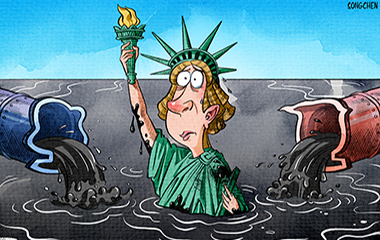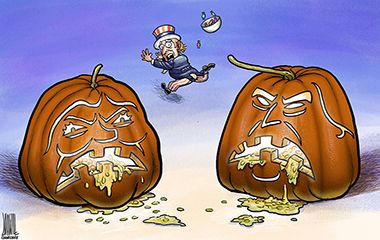Surge of credit funds not good for real economy
If credit funds emphasize only quantitative growth and scale expansion, rather than improvements in quality and efficiency, then the additional funds in the market will have little effect on economic growth, says an editorial in Beijing News Daily. Excerpts:
Securities Daily reports that the newly increased credit scale in January is predicted to surge to 980 billion yuan ($157.3 billion) to 1 trillion yuan. Although it is normal for the credit scale to go up at the beginning of a new year, such an increase in January is still beyond market expectations. Moreover, as the macroeconomic environment is relatively depressed, some experts believed that it can be a signal that the economy will rise again.
However, the structure and need for credit funds are actually more important than its scale and growth rate. So if the release of credit capital emphasize only the quantitative expansion, the additional capital in the market will have little effect on the economy, and may even have adverse effects.
If we check the details of the newly increased credit funds, they didn't flow into the real enterprises, especially those medium-sized and small enterprises, but those funds have became loans to the banks and other financial institutions, which finally largely increased the composite costs of companies applying for bank loans. Therefore, such a capital flow is bad for the real economy.
Besides, data from the central bank show that until the end of 2012, the real estate loan balance from major financial institutions in China has reached 1.21 billion yuan, a 12.8 percent increase compared with last year. In other words, although there are tough regulations and controls on the real estate industry, there are many financial institutions providing loans for the real estate developers. And the local government liability also increased since the latter half of last year as many government financing vehicles were getting new loans.
Therefore, such a rapid increase in credit funds have not benefited the real economy. Instead, it increased the costs for companies getting loans, especially for those medium-sized and small enterprises.
It is urgent to improve the credit structure to support the real economy. Otherwise, the additional funds flying into the market portend tougher days for the real economy.



















